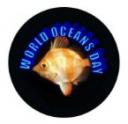 Established in 1994 to address the alarming statistics that shows a yearly rate of abandoned pets to be at 6 to 8 million. Among those, around 3 to 4 million are euthanized due to the inability of shelters to take care of them due to restricted resources and funding. Rated a four-star charity by the Charity navigator, they have managed to save the lives of around 3.3 million pets spanning the species spectrum of animals that they send into adoption programs to get them the loving homes they deserve. These abandoned pets are a result of irresponsible pet ownership, some are abandoned due to financial problems, and some are left to fend for themselves, sometimes in appalling conditions. These animals got through health checks and are brought back to proper health according to pre-set standards. Animals are then checked for signs that may show if they are indeed probable candidates for adoption, animals with degenerative diseases and psychological issues are put down for apparent reasons. Their vision of a home for every pet might be too ambitious but they are getting things done and indeed saving lives of animals who would otherwise have to be put down. With the help of state and local authorities and funding from private individuals and businesses they continue on their loving work to get each and every animal a home that would give them the best possible care.
Established in 1994 to address the alarming statistics that shows a yearly rate of abandoned pets to be at 6 to 8 million. Among those, around 3 to 4 million are euthanized due to the inability of shelters to take care of them due to restricted resources and funding. Rated a four-star charity by the Charity navigator, they have managed to save the lives of around 3.3 million pets spanning the species spectrum of animals that they send into adoption programs to get them the loving homes they deserve. These abandoned pets are a result of irresponsible pet ownership, some are abandoned due to financial problems, and some are left to fend for themselves, sometimes in appalling conditions. These animals got through health checks and are brought back to proper health according to pre-set standards. Animals are then checked for signs that may show if they are indeed probable candidates for adoption, animals with degenerative diseases and psychological issues are put down for apparent reasons. Their vision of a home for every pet might be too ambitious but they are getting things done and indeed saving lives of animals who would otherwise have to be put down. With the help of state and local authorities and funding from private individuals and businesses they continue on their loving work to get each and every animal a home that would give them the best possible care.
Originally posted on April 19, 2011 @ 6:58 am








 Whales are considered to be the least studied marine mammals on earth due to their secretive lifestyle while they roam the world’s oceans. From birth till maturity, their lives are still quite murky for the studies only go on seasonal observations by scientists. Their long lifespan and large size prevents them from being captured and raised in captivity where scientists have learned so much about the world’s many marine animals. Breeding, diets, and many other aspects of their daily lives still elude our scientists and new innovative developments like the whale cam, which is a camera that attached to the back of whales allowing scientists to see what they do when they go miles under the sea to feed or do whatever whales do.
Whales are considered to be the least studied marine mammals on earth due to their secretive lifestyle while they roam the world’s oceans. From birth till maturity, their lives are still quite murky for the studies only go on seasonal observations by scientists. Their long lifespan and large size prevents them from being captured and raised in captivity where scientists have learned so much about the world’s many marine animals. Breeding, diets, and many other aspects of their daily lives still elude our scientists and new innovative developments like the whale cam, which is a camera that attached to the back of whales allowing scientists to see what they do when they go miles under the sea to feed or do whatever whales do.

 This might be one of the most important endeavour people should engage in for the seas that surround our continents are there to stay along with the many species of marine mammals, fishes and plants that are unique to each and every marine environment. Many species of animals are in the endangered species list and people have to take notice and action even within the household which has far reaching effects on our plant’s ecology. The recent uproar on Japan’s Whale hunting and
This might be one of the most important endeavour people should engage in for the seas that surround our continents are there to stay along with the many species of marine mammals, fishes and plants that are unique to each and every marine environment. Many species of animals are in the endangered species list and people have to take notice and action even within the household which has far reaching effects on our plant’s ecology. The recent uproar on Japan’s Whale hunting and